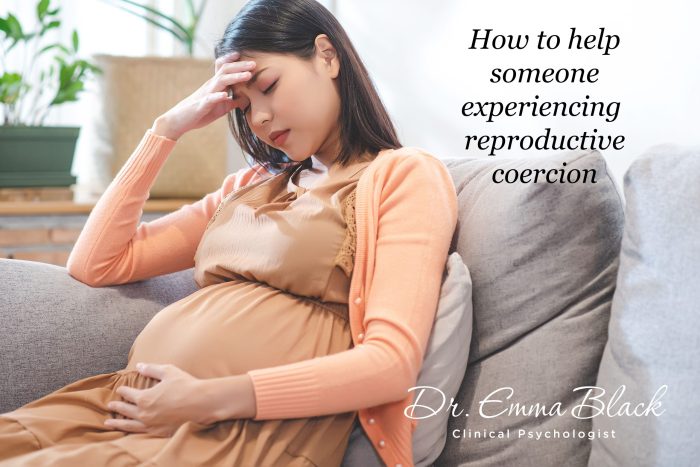If you, or someone you know, is experiencing pressure to have a baby, an abortion, or to keep a baby (regardless of your wishes), this is reproductive coercion. There are several things that may help support someone navigating this:
- Recognise and label it for what it is. ‘It sounds like you’re being pressured, threatened, or coerced into having a baby or getting rid of your baby’.
- Gently explore what is wanted. ‘What is it that you actually want for yourself and your future?’
- Refer them to this blog on ways that other women have resisted reproductive coercion.
- Consider if reproductive coercion is part of a pattern of DV, and whether other services (such as DV support, or even just connecting with their doctor) could be helpful. And, coercive control within relationships is a crime, so notifying police may form part of the picture, too.
- If you work in healthcare:
- Some women have flagged that getting asked if there is coercion to start or continue a pregnancy would be helpful.
- Some women have raised that having a doctor volunteer and discuss non-detectable contraception with them would be helpful.
- A small number of women (3%) informed that having their doctors ask them if their birth control was being sabotaged would be helpful¹.
Being aware of what reproductive coercion looks like is half the battle. It’s not just a partner wanting commitment or over-zealous family or in-laws. It’s not just misplaced love and caring. It breaches your rights to make your family planning decisions freely, and is abusive – particularly when it is tied up in strong emotions and close relationships.
Every woman needs to know what reproductive coercion is.
No woman should experience this.

